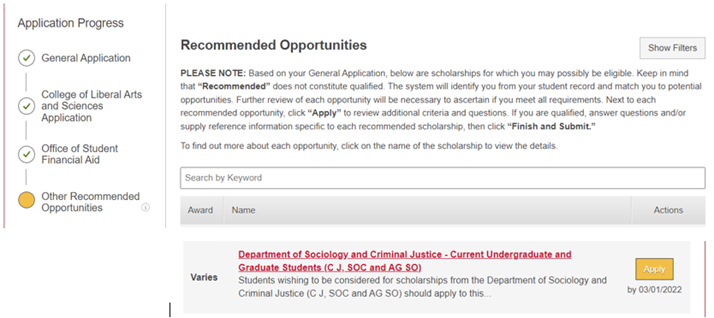Requirements:
- Undergraduate and graduate students majoring within any discipline of sociology (sociology, rural sociology, agricultural and rural policy studies (Ag Policy) or criminal justice).
- Demonstrates financial need (U.S. citizens must have submitted FAFSA by February 29, 2024 (early priority deadline). Graduate and undergraduate non-U.S. citizens must have answered the OneApp General Application question or the department Apply-To question explaining your family’s financial situation if it presents obstacles to pursuing your degree.).
- 2.5 or above GPA.
- Good citizenship and character.
- Demonstrates promise of succeeding in chosen profession.
The George Henry and Maude Drew Von Tungeln Scholarship was established in 1969 by Mrs. Maude Drew Von Tungeln in honor and memory of her husband, George Henry Von Tungeln. Mrs. Von Tungeln received her M.S. degree from Iowa State in 1929. She passed away in 1973.
George Von Tungeln was born and raised on a farm near Golconda, Illinois. He received a bachelor’s degree in 1909 from Central Wesleyan College, Warrenton, Missouri, an M.A. in 1910 from Northwestern University, was a fellow at Harvard from 1911-1913 where he also received the Ph.D. He was one of the early pioneers in rural sociology and has been closely associated with its expansion in the United States.
In 1913, Dr. Von Tungeln was hired as an assistant professor of sociology at Iowa State College in the Department of Economic Science to teach two courses in sociology and one or more courses in economics. These first two sociology courses were rural sociology and applied sociology.
Dr. Von Tungeln initiated the first formal rural sociology research project with Agricultural Experiment Station funding at Iowa State College in 1915. In this project he introduced an element in his phase of farm tenancy which later became standard in all states and in the federal censuses (classifying tenants as (1) those related to the land owner, and (2) those not related to the land owner).
In 1919, Dr. Von Tungeln was one of a committee of 24 called to Washington, D. C. by President Wilson, through Secretary of Agriculture Houston, to discuss the possible organization of a Rural Life Study Section in the Department of Agriculture and to formulate a program and policy of work for the same, if it was decided that such a section should be organized. The organization of the Section on Farm Population and Rural Life Studies, USDA, came as a result of this committee’s work and counsel with the secretary of agriculture. In 1934 he was elected Chair of the Rural Sociology Section of the American Sociological Society. During his term of office he was instrumental in organizing the Rural Sociological Society. He was also a member of the committee which organized the Midwest Sociological Society.
Extension work in the department was begun in the field of rural sociology in 1921. Activities included conducting rural leader training schools, helping rural groups to organize and develop community activities and programs of service, providing program service help and direction for organizations, development of state programs and standards for rural group activities, and helping with the correlation and coordination of rural organizations’ activities in the state.
By 1932, Dr. Von Tungeln was Head of the sociology section of the department which had been renamed the Department of Economics and Sociology. There were 14 sociology courses being offered with an annual enrollment of 700 students. Four national organizations had asked sociology staff to assist them with their research: 1)The Committee on Cost of Medical Care; 2) Social Science Research Council; 3) President Hoover’s Commission on Social Change and Social Trends, and 4) National Probation Association of America.
Dr. Von Tungeln died suddenly and unexpectedly of a heart attack on April 6, 1944 at 61 years of age as he was completing his thirty-first year as a member of the Iowa State College faculty.

